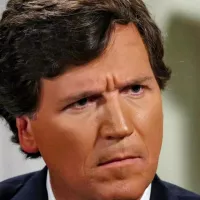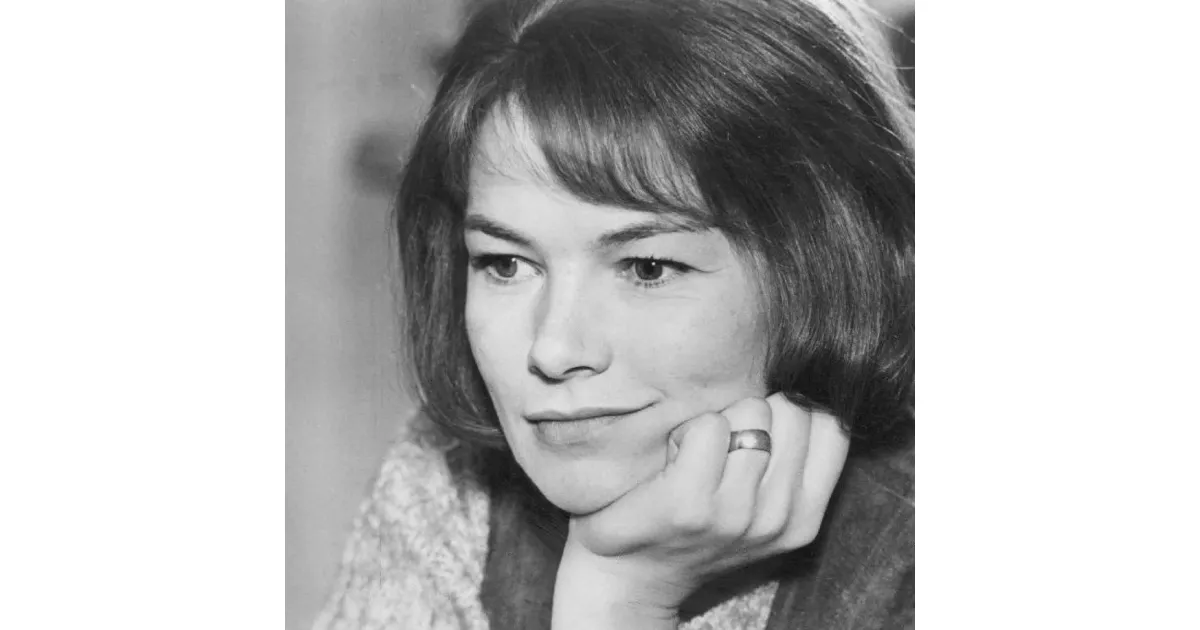Glenda Jackson (1936-2023) was a celebrated English actress and Labour Party politician. She achieved EGOT status and earned two Academy Awards, two BAFTA Awards, three Emmy Awards, a Golden Globe Award, and a Tony Award for her acting career. Simultaneously, Jackson served as a Member of Parliament (MP) for 23 years, representing Hampstead and Highgate (1992-2010) and later Hampstead and Kilburn (2010-2015). She balanced her successful acting career with dedicated political service.
1957: Met Roy Hodges
In 1957, Glenda Jackson met Roy Hodges, a stage manager and fellow actor.
August 1958: Marriage to Roy Hodges
On August 2, 1958, Glenda Jackson married Roy Hodges at St Marylebone Register Office in London.
1969: Birth of son Dan
In 1969, Glenda Jackson's son, Dan, was born.
October 1974: Supported Women's Rights candidacy
In October 1974, Glenda Jackson supported Una Kroll's Women's Rights candidacy for Sutton and Cheam in the United Kingdom general election.
1975: Affair with Andy Phillips and divorce filing
In 1975, Glenda Jackson began an affair with Andy Phillips, and Roy Hodges sued Jackson for divorce in November of that year.
1975: Starred in The Romantic Englishwoman
In 1975, Glenda Jackson starred in The Romantic Englishwoman alongside Michael Caine.
1975: Voted against EEC membership
In 1975, Glenda Jackson voted against Britain continuing in the European Economic Community.
1976: Divorce from Roy Hodges
In 1976, Glenda Jackson was divorced from Roy Hodges.
1978: Sponsored Anti-Nazi League and appeared in Oxfam advertisement
In 1978, Glenda Jackson sponsored the Anti-Nazi League and appeared in a print advertisement for Oxfam.
1979: Began a social science degree at the Open University
In 1979, Glenda Jackson began a social science degree at the Open University but dropped out a few months later.
1979: Was approached to stand at the general election
In 1979, Glenda Jackson was approached by a Constituency Labour Party (CLP) in Bristol to stand at the general election, but this did not happen.
1981: End of relationship with Andy Phillips
In 1981, Glenda Jackson's on-off relationship with Andy Phillips ended.
1983: Turned down the chance to be a candidate
In 1983, Glenda Jackson turned down an approach to be a candidate for the marginal Welsh seat of Bridgend to pursue a humanities degree at Thames Polytechnic. She dropped out before starting the course. She supported Paul Boateng and Ian Wilson, Labour's candidates for Hertfordshire West and Watford.
November 1984: Appeared in Phedra at The Old Vic
In November 1984, Glenda Jackson played the title role in Robert David MacDonald's translation of Racine's "Phèdre", titled "Phedra", at The Old Vic. Her performance was praised for its jagged and hoarse intensity, depicting the queen's torment. The costume worn by Jackson in the play is housed at the Victoria and Albert Museum.
1984: Radio play of Scenes from an Execution
In 1984 Glenda Jackson played the role of Galactia in the radio play "Scenes from an Execution".
1985: Congratulatory telegram to Neil Kinnock
In 1985, Glenda Jackson sent Neil Kinnock a congratulatory telegram after his Labour Party Conference speech criticizing Militant.
1986: Visited Ethiopia with Oxfam
In 1986, Glenda Jackson visited Ethiopia as part of Oxfam's efforts to help with the famine.
February 1987: Appeared in a party political broadcast for Labour
In February 1987, Glenda Jackson appeared in a party political broadcast for Labour.
September 1988: Chaired a United Nations committee on the cultural boycott
In September 1988, Glenda Jackson chaired a United Nations committee on the cultural boycott.
December 1989: Rumored to be approached by Leeds East CLP
In December 1989, it was rumored that Glenda Jackson had been approached by two branches of Leeds East CLP to succeed their Labour MP, Denis Healey, but she turned down the opportunity.
1989: Appeared in Ken Russell's The Rainbow and Who's Afraid of Virginia Woolf?
In 1989, Glenda Jackson appeared as Anna Brangwen in Ken Russell's film "The Rainbow". The same year, she played Martha in Edward Albee's "Who's Afraid of Virginia Woolf?" in Los Angeles, directed by Albee himself. While critics praised her performance alongside John Lithgow, Albee expressed disappointment, feeling she didn't fully embody the character of Martha.
1989: Approached Voluntary Service Overseas
In 1989, Glenda Jackson approached Voluntary Service Overseas about the chance of working in Africa for a couple of years.
March 1990: Won the ballot for Hampstead and Highgate CLP
On 28 March 1990, Glenda Jackson won the ballot for Hampstead and Highgate CLP, defeating Kate Allen, Sarah Palmer, and Maureen Robinson.
November 1990: Thatcher stepped down as prime minister
In November 1990, Margaret Thatcher stepped down as prime minister and leader of the Conservative Party.
1990: Performed in Howard Barker's Scenes from an Execution
In 1990, Glenda Jackson played Galactia, a sixteenth-century female Venetian artist, in Howard Barker's "Scenes from an Execution" at the Almeida Theatre. This was an adaptation of Barker's 1984 radio play in which Jackson had previously played the same role.
1991: Retired from acting to devote herself to politics
In 1991, Glenda Jackson retired from acting to focus on politics full-time as the prospective parliamentary candidate for Hampstead and Highgate.
1992: Gained the seat for Hampstead and Highgate
In 1992, Glenda Jackson gained the parliamentary seat for Hampstead and Highgate, narrowly beating the Conservative candidate Oliver Letwin. She was sponsored by the train drivers' union, ASLEF.
1992: Voted into Parliament
In July 2022, Glenda Jackson reflected on Parliament not being welcoming to women when she was voted in during the 1992 general election.
1992: Supported John Smith in leadership election
In the 1992 Labour Party leadership election, Glenda Jackson supported the successful candidate, John Smith.
1994: Backed Tony Blair in leadership election
In the 1994 leadership election, Glenda Jackson backed Tony Blair, who won and became prime minister.
July 1996: Became shadow transport minister
In July 1996, Glenda Jackson became shadow transport minister.
1997: Re-elected and appointed junior minister
Following Labour's victory in the 1997 general election, Glenda Jackson was re-elected and appointed as a junior minister in Tony Blair's government, with responsibility for London Regional Transport.
1997: Received an absolute majority
In 1997, Glenda Jackson received an absolute majority of votes cast in her constituency, which was the only occasion she achieved this.
1999: Resigned from her post
In 1999, Glenda Jackson resigned from her post as junior minister in London Regional Transport.
2000: Unsuccessful attempt to be nominated as Labour candidate for mayor of London
In 2000, Glenda Jackson unsuccessfully attempted to be nominated as the Labour candidate for the election of the first mayor of London, coming third behind Frank Dobson and Ken Livingstone.
2001: Re-elected to represent her constituency
In 2001, Glenda Jackson was re-elected to represent her constituency at the general election.
October 2005: Threatened to challenge Blair as a stalking horse candidate
In October 2005, Glenda Jackson threatened to challenge Tony Blair as a stalking horse candidate in a leadership contest.
2007: Expenses claims
In 2007 Glenda Jackson claimed £136,793 in allowances despite low attendance.
2008: Expenses claims
In 2008 Glenda Jackson claimed £136,793 in allowances despite low attendance.
2008: Supported Gordon Brown as prime minister
In 2008, Glenda Jackson voiced her support for Gordon Brown as prime minister.
May 2010: Elected as MP for Hampstead and Kilburn
In May 2010, Glenda Jackson was elected as the MP for the new Hampstead and Kilburn constituency with a narrow margin of 42 votes.
2010: Voted for David Miliband in leadership election
In the 2010 Labour Party leadership election, Glenda Jackson voted for David Miliband.
June 2011: Announcement not seeking re-election
In June 2011, Glenda Jackson announced she would not seek re-election in 2015.
April 2012: Reported expenses claims
In April 2012, it was reported that in 2007-2008 Glenda Jackson claimed £136,793 in allowances and had to repay more than £8,000 in expenses she had wrongly claimed in 2011.
April 2013: Speech on Margaret Thatcher's death
In April 2013, Glenda Jackson delivered a speech in the House of Commons following Margaret Thatcher's death, criticizing Thatcherism.
June 2014: Assessment of Iain Duncan Smith's tenure
In June 2014, Glenda Jackson gave a scathing assessment of Iain Duncan Smith's tenure as Work and Pensions Secretary.
November 2015: Returned to acting in Blood, Sex and Money on Radio 4
In November 2015, Glenda Jackson returned to acting after a 23-year absence, playing Dide in "Blood, Sex and Money", a radio drama series on Radio 4 based on Émile Zola's Les Rougon-Macquart series. The series aired until October 2016.
2015: Supported Jeremy Corbyn
Following her departure from Parliament, in 2015 Glenda Jackson stated that she supported Jeremy Corbyn "as a person".
2015: End of parliamentary term
Glenda Jackson's parliamentary term, which began in 2010, ended two days before her 79th birthday in 2015.
October 2016: King Lear at the Old Vic Theatre
In October 2016, Glenda Jackson returned to the stage, playing the title role in William Shakespeare's "King Lear" at the Old Vic Theatre in London, in a production running from 25 October to 3 December.
2016: Supported remaining in the European Union
In 2016, Glenda Jackson supported Britain remaining in the European Union in the Brexit referendum, despite having previously voted against EEC membership.
2016: Reported to be 'happily single'
In 2016, it was reported that Glenda Jackson had been "happily single for decades".
2017: Won Natasha Richardson Award
In 2017, Glenda Jackson won the Natasha Richardson Award for Best Actress at the Evening Standard Theatre Awards for her performance in "King Lear".
2018: Returned to Broadway in Three Tall Women
In 2018, Glenda Jackson returned to Broadway in a revival of Edward Albee's "Three Tall Women", acting alongside Laurie Metcalf and Allison Pill, and won the Tony Award for Best Actress in a Play for her role.
April 2019: Returned to the title role of King Lear on Broadway
In April 2019, Glenda Jackson returned to the title role of "King Lear" on Broadway.
2019: Returned to television drama with Elizabeth is Missing
In 2019, after a 27-year absence, Glenda Jackson returned to television drama, portraying an elderly grandmother struggling with dementia in "Elizabeth Is Missing" on BBC One, based on the novel of the same name by Emma Healey. She won the BAFTA TV Award and International Emmy Award for Best Actress for this role.
2019: Drama 'Elizabeth Is Missing'
In tribute to Glenda Jackson, on the day of her death in June 2023, the BBC broadcast the 2019 drama Elizabeth Is Missing.
February 2020: Starred in Fault Lines: Money, Sex and Blood
In February 2020, Glenda Jackson starred in the lead role of Constance Sterling in the radio drama series "Fault Lines: Money, Sex and Blood" for Radio 4.
July 2020: Happy with Keir Starmer as party leader
In July 2020, Glenda Jackson declared herself happy with Keir Starmer as party leader.
February 2021: Starred in The Great Escaper
In February 2021, it was announced that Glenda Jackson would star alongside Michael Caine in "The Great Escaper", a film based on the true story of Bernard Jordan.
January 2022: Continued starring in Fault Lines: Money, Sex and Blood
In January 2022, Glenda Jackson continued starring in the lead role of Constance Sterling in the radio drama series "Fault Lines: Money, Sex and Blood" for Radio 4.
July 2022: Commented on Keir Starmer's voice
In July 2022, Glenda Jackson commented on Keir Starmer, wishing he would develop his voice.
July 2022: British Film Institute celebrated Jackson's film and television career
In July 2022, the British Film Institute held a month-long retrospective season at the BFI Southbank in London to celebrate Glenda Jackson's film and television career. It included screenings of her work and an interview with Jackson.
September 2022: Completed filming on The Great Escaper
In September 2022, Glenda Jackson finished filming on "The Great Escaper". It was to be her last film.
October 2022: Interview with John Wilson
In tribute to Glenda Jackson, on the day of her death in June 2023, the BBC broadcast a repeat of her interview with John Wilson first shown in October 2022.
June 2023: Death at 87
Glenda Jackson died at her Blackheath home on June 15, 2023, at the age of 87 following a brief illness.
October 2023: Released in The Great Escaper
Glenda Jackson's last film, "The Great Escaper", was released on 6 October 2023.
Mentioned in this timeline

Christmas is an annual festival celebrated on December th commemorating...
Africa is the second-largest and second-most populous continent comprising of...

Keir Starmer is a British politician and lawyer currently serving...

Los Angeles is the most populous city in California and...
Iraq officially the Republic of Iraq is a West Asian...
Virginia officially the Commonwealth of Virginia is a state located...
Trending

8 months ago Maury Povich reflects on media; Connie Chung honored and encouraged to write memoir.

COVID- testing is essential for identifying SARS-CoV- infections and tracking the pandemic Two primary types exist molecular tests detect the...

24 days ago Joseph Quinn's 'Stranger Things' impact, 'Master of Puppets' fame, and 'Pillion' BIFA win.

2 months ago Tornado Warning Issued for Terrebonne and Lafourche Parishes, Severe Weather Hits Houston

Mike McCarthy is an American football coach He was the head coach of the Dallas Cowboys - and the Green...

8 months ago Becky Lynch Ventures into 'Star Trek' and 'Happy Gilmore 2,' Feuds Emerge
Popular

Tucker Carlson is an American conservative political commentator known for...

XXXTentacion born Jahseh Dwayne Ricardo Onfroy was a controversial yet...

Ben Shapiro is a prominent American conservative political commentator media...

Candace Owens is an American conservative political commentator and author...

William Franklin Graham III commonly known as Franklin Graham is...

Ursula Gertrud von der Leyen is a prominent German politician...
